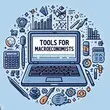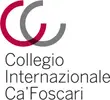-
- Professional Training Course, Online Course
- (Online)
- Posted 1 day ago
EcoMod ONLINE
at EcoMod
-
- Professional Training Course
- Posted 2 days ago
BSE Competition Economics Courses - Executive Education
Starts 9 Mar at Barcelona School of Economics in Barcelona, Spain
-
- Summer School
- Posted 3 days ago
Global School in Empirical Research Methods GSERM at the University of St.Gallen
Starts 20 Apr at University of St.Gallen in Sankt Gallen, Switzerland
-
- Professional Training Course, Supplementary Course, Online Course
- (Online)
- Posted 3 days ago
Maximising the Potential of Stata’s new Python Capabilities - Live Online Course
Starts 9 Apr at TStat Training
-
- Professional Training Course, Online Course
- (Online)
- Posted 1 week ago
Up and Running in Stata - Live Online Training
Starts 23 Mar at TStat Training in Sulmona, Italy
-
- Professional Training Course, Supplementary Course, Online Course
- Posted 1 week ago
Meta-Analysis in Stata - Live Online Training
Starts 16 Apr at TStat Training
-
- Summer School
- Posted 2 weeks ago
BSE Summer School 2026: Economics, Finance, Data Science, and related fields
Starts 22 Jun at Barcelona School of Economics in Barcelona, Spain
-
- PhD Program, Supplementary Course, Program
- (Hybrid)
- Posted 1 week ago
International Doctoral Courses and Seminars in Health Economics and Policy
at Swiss Society of Health Economics (sggö) in Lucerne, Switzerland
-
- Summer School
- Posted 1 week ago
Summer School 2026: Cognitive Foundations of Decision-Making
Starts 6 Jul in Gent, Belgium
-
- Professional Training Course, Summer School
- Posted 2 weeks ago
EcoMod School of Modeling and Data Science - Prague, Czech Republic
Starts 29 Jun at EcoMod in Prague, Czechia
-
- Summer School
- Posted 1 week ago
2026 Nova SBE PhD Summer School: Development Economics
Starts 22 Jun at NOVA School of Business and Economics in Lisbon, Portugal
-
- Summer School
- Posted 1 week ago
Nobels in Economics James Heckman and Mike Spence at the I.S.E.O. Summer School - "The New Global Economic Order"
Starts 13 Jun in Iseo, Italy
-
- Summer School
- Posted 2 weeks ago
GSERM Barcelona - Global School of Empirical Research Methods
Starts 29 Jun at University of St.Gallen and ESADE Business School in Barcelona, Spain
-
- Summer School
- Posted 3 weeks ago
Oxford University Summer School - Fundamentals of Graduate Economics and Finance
Starts 22 Jun at Department of Economics, University of Oxford in Oxford, United Kingdom
-
- Summer School, Event, Supplementary Course, Workshop
- Posted 2 weeks ago
Institutional and Organizational Economics Academy (IOEA) 2026
Starts 6 Apr at Université Paris-Dauphine and Scientific Research Institute of Cargese in Cargèse, France
-
- Summer School
- Posted 3 weeks ago
Geoeconomics Uncovered: Theory Meets Evidence
Starts 1 Jun at Department of Economics, University of Oxford in Oxford, United Kingdom
-
- Summer School
- Posted 1 month ago
Oxford University Economics Summer School
Starts 7 Sep at Department of Economics, University of Oxford in Oxford, United Kingdom
-
- PhD Program, Supplementary Course, Program
- Posted 3 weeks ago
Advanced PhD Courses
at Kiel Institute for the World Economy (IFW) in Kiel, Germany
-
- Summer School
- (Online)
- Posted 2 weeks ago
Tools for Macroeconomists Summer School
Starts 3 Aug
-
- Professional Training Course
- (Online)
- Posted 1 month ago
BSE Data Science for Economics Course - Executive Education
Starts 17 Feb at Barcelona School of Economics in Barcelona, Spain -
- Summer School
- Posted 2 days ago
Heidelberg Health Economics Summer School 2026
Starts 30 Sep at InnoVal HC - Institute for Innovation & Valuation in Health Care in Wiesbaden, Germany -
- Event, Supplementary Course, Conference
- Posted 1 month ago
20 fellowships for advanced courses in Risk Analytics, funded by Collegio Internazionale Ca’ Foscari (CICF) in Venice
Starts 13 Apr at Collegio Internazionale Ca' Foscari in Venice, Italy
-
- Professional Training Course, Online Course
- Posted 3 weeks ago
Python for Finance: Investment Fundamentals & Data Analytics
at Coursera -
- Summer School
- Posted 1 month ago
Empirical Macroeconomics Summer School at Ghent University
Starts 24 Aug at Department of Economics, Ghent University in Gent, Belgium
-
- Professional Training Course, Supplementary Course, Online Course
- (Online)
- Posted 1 month ago
Visualizing Geospatial Data In Stata: Spatial Maps In Stata - Live Online Course
Starts 15 Jun at TStat Training
Pagination














